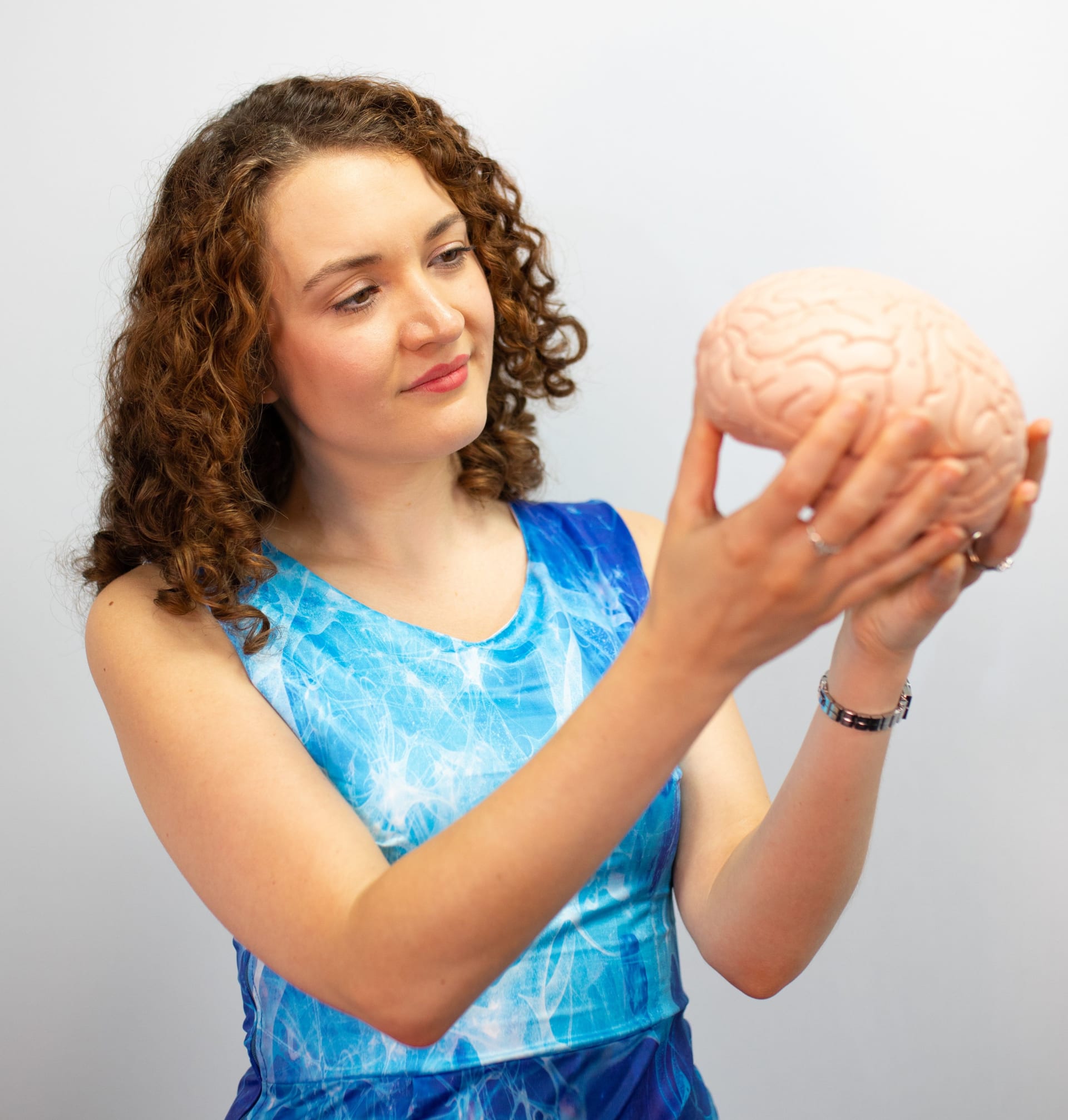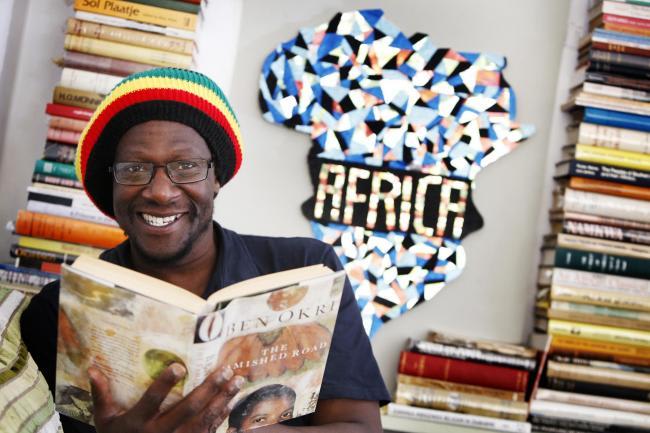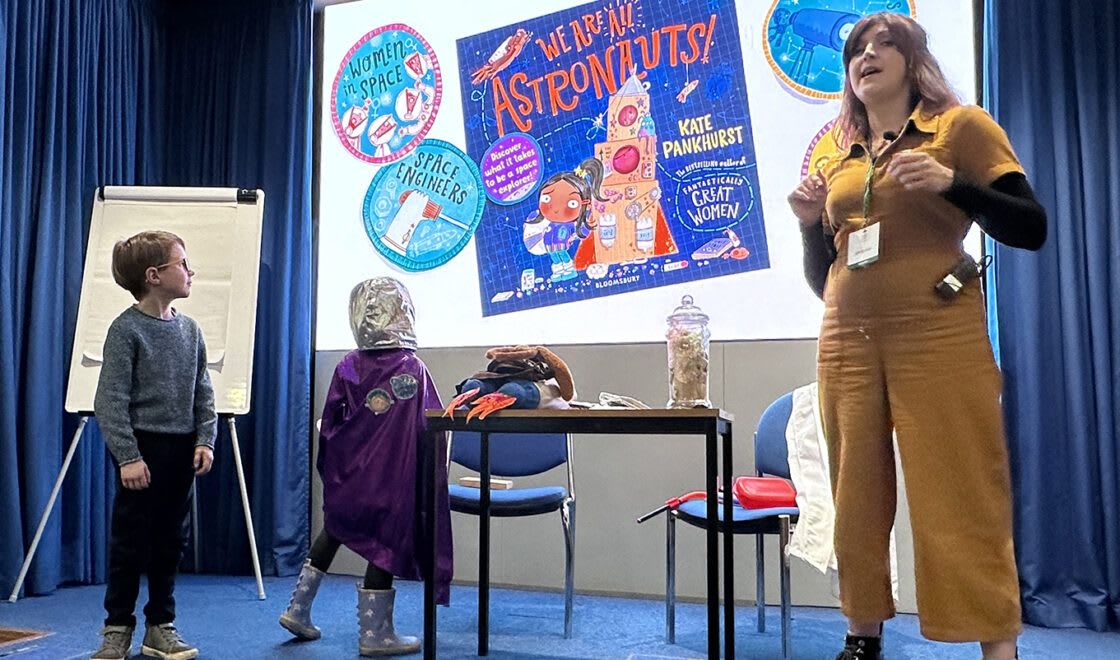As part of IF Oxford, the Oxford Playhouse presents Mastering Memory, a family show by Braintastic! Science that will help you take charge of your brain and banish the brain fog. Braintastic! is the brainchild of Ginny Smith who studied Natural Sciences at The University of Cambridge.
Having originally intended to focus on chemistry, she took a course in evolution and behaviour on a whim and found herself totally fascinated by the idea that we can use science and the scientific method to investigate and understand why people think and behave the way they do.
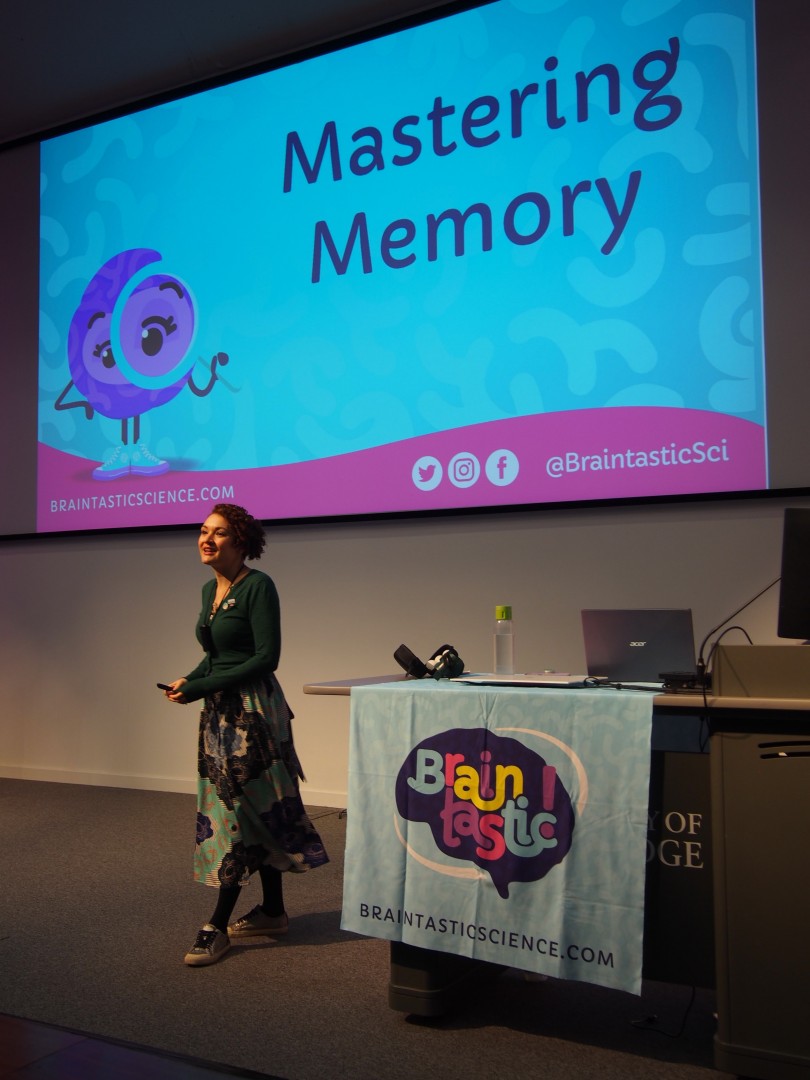 “It’s exciting how much there is to discover. There’s so much we still don’t know about how the brain works. I love that the research is so cutting edge and changes so fast – every five years our understanding of how it works is revolutionised. And there’s so much to be gained from understanding our brains better. So, while the show is designed to inspire young people, and it’s great to do that, we actually have a bigger and bolder ambition. We think that everyone can benefit from learning how the brain works and applying it to their own lives. By learning how we learn and how we remember things, we can start to do it better and more efficiently.
“It’s exciting how much there is to discover. There’s so much we still don’t know about how the brain works. I love that the research is so cutting edge and changes so fast – every five years our understanding of how it works is revolutionised. And there’s so much to be gained from understanding our brains better. So, while the show is designed to inspire young people, and it’s great to do that, we actually have a bigger and bolder ambition. We think that everyone can benefit from learning how the brain works and applying it to their own lives. By learning how we learn and how we remember things, we can start to do it better and more efficiently.
I am that person who always asks the question ‘Why?’ and wants to know what’s happening behind the scenes. Students are often given revision tips and strategies, but these make much more sense, and seem more useful and relevant if the students understand why they work. We are passionate about getting that message out there – it can make such a difference to people’s everyday lives.
In the show the presenter, Alina, explains in a fun way what’s going on in your brain when you learn. We introduce memory tips and tricks and explore how they build better connections between brain cells, helping you store information more efficiently. It’s a very interactive performance with lots of memory games. We ask people to remember things and test themselves and each other throughout, and we hope they’ll have some surprises along the way.
One of the games is a version of the children’s party game ‘Kim’s game’. We show the audience several household items on a tray, like a pink elephant nail brush and a small blue-haired troll doll and give them a few moments to look at it. Then a few items are removed, and they have to see if they can spot what’s missing. Next, we give the audience a strategy around grouping and seeing links between the items and in the second round, people are pleased to see they’ve managed much better.
One of my favourite memory strategies we cover in the show is called the Memory Palace or Mind Palace. It’s an ancient technique that was used by the Roman Orators when they had long speeches to remember and it’s particularly helpful for keeping things in a specific order. The name conjures up images of beautiful mountaintop palaces with domes and castellations, like the Sintra Palace in Portugal, but in reality, you need to visualise somewhere you know well: your own home, or office, or even a route you walk every day. You then walk through it in your mind, placing the things you need to remember in set spots along the way.
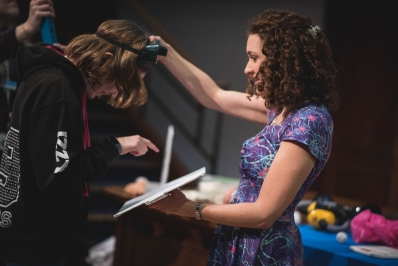 This approach was, apparently, Sherlock Holmes’ favourite. I’m a big Sherlock fan, and I loved the stylised way that the Benedict Cumberbatch series was filmed, so you could see him retrieving information from his mind palace. Sherlock is, of course, a fictional character, but this is a technique used by real life Memory Champions; those people who can perform seemingly incredible feats like remembering the order of a whole pack of cards in twenty seconds. You might think that they all have extraordinary brains that work in a different way to ours but what’s amazing is that they don’t; they just have great memorisation technique. No-one is born with an amazing memory – recalling things is something that you can learn to do better.
This approach was, apparently, Sherlock Holmes’ favourite. I’m a big Sherlock fan, and I loved the stylised way that the Benedict Cumberbatch series was filmed, so you could see him retrieving information from his mind palace. Sherlock is, of course, a fictional character, but this is a technique used by real life Memory Champions; those people who can perform seemingly incredible feats like remembering the order of a whole pack of cards in twenty seconds. You might think that they all have extraordinary brains that work in a different way to ours but what’s amazing is that they don’t; they just have great memorisation technique. No-one is born with an amazing memory – recalling things is something that you can learn to do better.
Memories are formed in our brains by strengthening connections between brain cells or ‘neurons’, through practice and repetition. Memory techniques are a short-cut to forming these connections. We have about 86 billion neurons in our brains and each one is connected to many, many others. The neurons send messages using electrical signals, but if we zoomed in on the end of a neuron, we would see it doesn’t actually touch the next neuron; instead there is a gap, called a synapse. The first neuron sends an electrical signal, and when it reaches the end, chemicals called neurotransmitters are released into the synapse. They filter across, are detected by the second neuron, and it can then send its own electrical signal.
When you repeatedly activate the same pairs of neurons, the first neuron begins making and releasing more neurotransmitters, and the second makes more receptors. This means the signal can pass more quickly and easily between the cells. If you activate the pairs of neurons enough times you can even create new synapses, new pathways for the information to travel along. And that's what learning is – physical changes in the brain and the way it behaves made by forming or strengthening connections between neurons – and so that’s how Sherlock solves his mysteries.
When people leave the show, they’ll be filled with a sense of wonder about their amazing brain, and how much scientists are still learning about it every day. We also hope that the audience will take away a selection of tips and techniques they can apply to their daily lives to change them a little bit for the better. Whether that’s teenagers revising more efficiently or adults remembering where they left their car keys or even using those skills to become the next super-sleuth, understanding our memory can be helpful for everyone.”
Mastering Memory: Oxford Playhouse, Wednesday 26 October, 7pm
